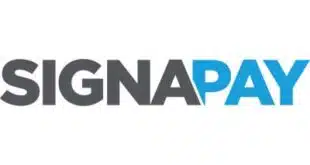Perhaps the most significant fintech trend is the convergence of ISOs and software developers. Both have much to gain by adding the value provided by the other.

Why ISVs are embracing fintech
Software companies enjoy some very compelling benefits of fully embracing payment integrations. There’s an opportunity to build more recurring revenue. ISVs who haven’t monetized payments are leaving a considerable amount of recurring revenue on the table. In fact, payments revenue can eclipse monthly SaaS revenue for some software companies.
Another benefit centers on the transition to omnichannel commerce. Many software companies have had to pivot to accommodate merchants’ and customers’ ever-increasing interest in accepting payments across various channels. By selecting a payment partner with a complete stack of offerings, ISVs can gain full commerce payment capabilities.
With the right payments partner, software companies can add payments data to the already bountiful volume of customer data that’s collected, priceless for decision-making, new features and upsell opportunities.
Software development gives ISOs a lot to celebrate
On the other side, next-generation ISOs have identified several benefits of aligning with software companies. Whether by partnering with a software company or building/acquiring the software outright, ISOs can reach merchants who would otherwise be unaware of their existence and services.
Another benefit is stickiness. Merchants are often willing to change payment providers while chasing better rates, but are hesitant to switch software providers since their businesses are closely tied to the software.
ISOs who’ve embraced software typically earn more lucrative merchant accounts. Indeed, merchants investing in some software packages can reveal a level of operational maturity and stability associated with a higher, more consistent processing volume.
There’s also a better upsell opportunity for ISOs turned ISVs. A merchant relationship can start with payments but grow into related products and services such as payroll, invoicing and more. Additionally, upsell opportunities can be staged (required information is only requested as needed) to ease merchants into the process.
ISOs, ISVs and Acquisitions
When pursuing a payments integration, ISVs should seek to align themselves with a fintech partner who provides transparency, fast and simple API integration, full commerce enablement, dedicated support and the possibility of white labeling the payments piece of the solution.
ISOs and other payment providers may consider building software or, more realistically, acquiring a software company. This trend of software company acquisition has been occurring in the retail and restaurant verticals with considerable success for the payment companies involved. There’s no reason to think it can’t or won’t happen on a large scale across other niche markets – especially those with high ticket averages and recurring payments.
With so many benefits to both ISVs and ISOs, it’s safe to assume that the lines between software and payments will continue to blur in the coming years. The only question is, will your company join in on the opportunity or miss out?





